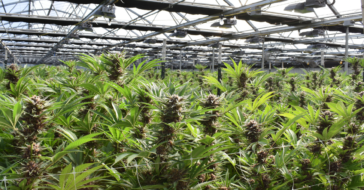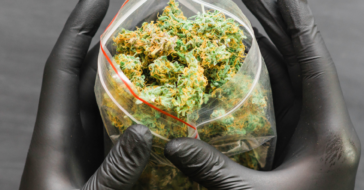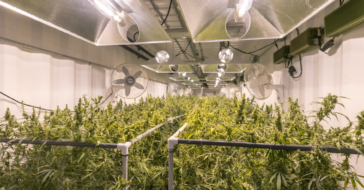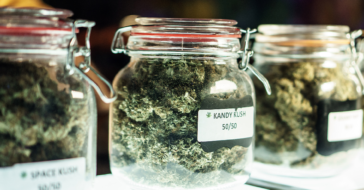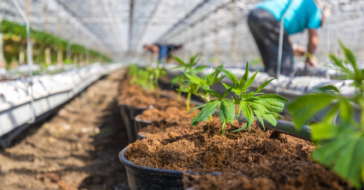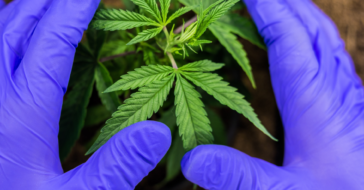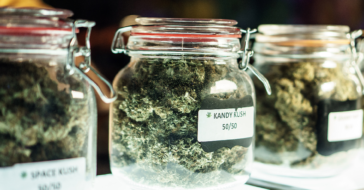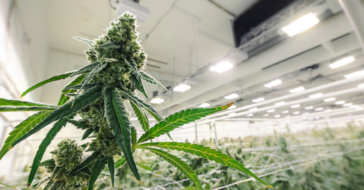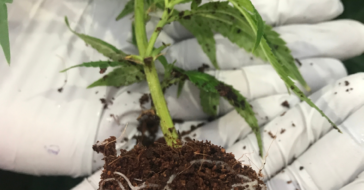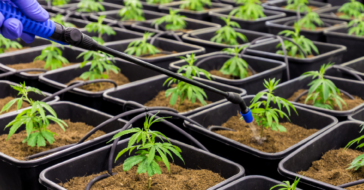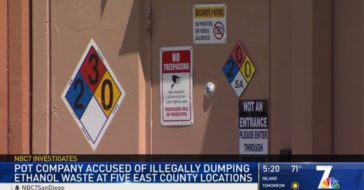People who live or are visiting California can head to cannabis dispensaries where they can purchase legal marijuana. However, walk into any one of these dispensaries and you may feel as though you’re in a pharmacy or specialty retail store.
Many dispensaries currently aren’t leisurely hangouts, filled with comfortable sofas, live music and snacks. But that could soon change.
Assembly Bill 374 sits on California Gov. Gavin Newsom’s desk, waiting for his signature to become law. Earlier this month, the bill passed the California Senate and the Assembly overwhelmingly.
If approved, it would allow businesses to create similar cafe experiences to those found in Amsterdam – coffee, snacks, live music and legal weed, all in the same location.
If you’re a business that currently operates as part of the cannabis industry or you’re considering breaking into this expanding market, it’s important to read on to understand how these evolving regulations impact you.
What Does Assembly Bill 374 Allow And Not Allow?
If the California governor approves Assembly Bill 374, licensed dispensaries will be allowed to prepare or sell non-cannabis food or beverage products, such as baked goods and coffee. Live music or other performances will also be permitted on-site.
The bill will enforce some restrictions, however. Access to these types of areas will be limited to individuals 21 and older, and the consumption of cannabis cannot occur within view of a public area.
Dispensaries also cannot sell alcohol or tobacco on the premises, and coffee shops are prohibited from selling cannabis.
How Does This Bill Impact Your Cannabis Business?
Assembly Bill 374 may or may not impact your current cannabis business. If you operate a dispensary and are considering looking for ways to attract more customers to your location, adding a cafe-style atmosphere can encourage patrons to visit and stay longer.
ways to attract more customers to your location, adding a cafe-style atmosphere can encourage patrons to visit and stay longer.
As a nursery, distributor, manufacturer or cultivator, you could see a bump in demand depending on your client’s needs and the overall success of these cafes if allowed. Some non-cannabis businesses, such as baked goods and coffee suppliers, could see more business as well.
However, for many cannabis companies, whether the governor ultimately signs Assembly Bill 374 won’t impact their day-to-day operations.
So, what’s the takeaway from this latest cannabis industry news? The cannabis industry is continually evolving, and your cannabis business must be ready for any changes in the pipeline.
How Fast Is The Cannabis Market Growing?
The global cannabis market is projected to grow from just over $28 billion in 2021 to $197 billion in 2028.
In 2022, the U.S. cannabis market size was valued at $13.2 billion. That market size is expected to expand at a compound annual growth rate (CAGR) of more than 14% from 2023 to 2030.
And while nearly half of the states in America have legalized marijuana, additional states have medically legalized it or decriminalized its use. While marijuana remains a Schedule 1 Federally Controlled Substance, there is a push for the federal legalization of marijuana. That means more opportunities for business growth, but also more regulations that you have to monitor.
How Are Laws In The Cannabis Industry Evolving?
Awaiting approval by the California governor as well is Senate Bill 58, which would decriminalize individuals 21 and older owning or preparing “certain hallucinogenic substances,” including psilocybin, which are often referred to as “magic mushrooms.” While shrooms won’t be legal, it’s an example of how new laws could be laying the foundation for a broader transformation in drug policy.
In August, the U.S. Department of Health and Human Services formally recommended that the federal government downgrade weed from a “Schedule 1” substance to a much less severe “Schedule 3” substance. While changing marijuana to a “Schedule 3” does not legalize it, it does provide some benefits to cannabis businesses, including ending tax rule 280E.
Passed by the federal government in 1982, 280E prohibits organizations that sell Schedule 1 or 2 substances from deducting expenses on their taxes. As state-licensed marijuana dispensaries have opened, a painful surprise awaited them. The rule meant a tax rate higher than that of other U.S. businesses.
If the Department of Justice accepts the Department of Health and Human Service’s recommendation, legal cannabis businesses could write off some expenses just like any other business.
Those are just two examples of cannabis laws that are evolving and will continue to evolve over time as the cannabis industry grows. Another area of frequent change occurs with cannabis waste disposal guidelines. Just two years ago, three agencies shared the job of licensing and regulating all commercial cannabis activity, including disposal. Now, one agency, the Department of Cannabis Control (DCC), handles these duties.
As cannabis laws continue to evolve, effective and responsible disposal practices are crucial for businesses to ensure regulatory compliance – especially at a time where there could be more opportunities on the horizon for entrepreneurs wanting to test the waters in this hot market.
How Does Your Business Stay On Top Of Evolving Laws?
Whether you’re in the cannabis industry or are considering opening a business, it’s important to stay on top of disposal and transportation laws since you may see these change at a rapid pace as the industry continues to expand at both the state and federal levels.
Experienced cannabis waste disposal companies can help you with the waste management component so you can focus on these other areas of your business.
Your future may include opening a cannabis cafe, dispensary or nursery. Or you may be considering becoming a cannabis manufacturer or distributor. No matter which path you take in the cannabis industry, it’s critical to have a thorough waste management plan in place.
After all, not all marijuana waste is the same. You may generate plant waste, manufacturing waste, packaging waste, contaminated soil, laboratory waste and even electronic waste as part of your day-to-day operations. Each of these has its own special disposal regulations that must be followed.
When choosing a cannabis waste management company, it’s essential to choose one with expertise in cannabis waste disposal since it requires specific knowledge and handling procedures to ensure compliance and minimize environmental impact.
Comprehensive services should also include:
- Collection
- Transportation
- Disposal
- Recycling and repurposing
The company you are considering should also provide consulting services to help you understand and comply with regulations related to cannabis waste management. As we pointed out above, regulations are continually evolving, and the best waste disposal companies will stay on top of these changes so that if you’re considering opening a cannabis business or expanding your current business venture, you can rest assured your company is in good hands.
You can read more about what you should look for in a cannabis disposal partner in our article, How To Choose The Right Cannabis Waste Management Company.



